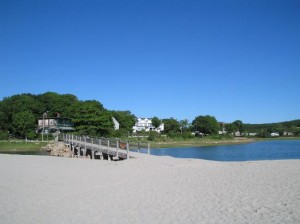 The cold and snowy winter has inspired my family to take a last-minute, warm-weather vacation. The idea of escaping frigid temperatures to lounge in the sunshine seems like it will lift our spirits. But now that our plane tickets are booked, I’m wondering what the evidence says.
The cold and snowy winter has inspired my family to take a last-minute, warm-weather vacation. The idea of escaping frigid temperatures to lounge in the sunshine seems like it will lift our spirits. But now that our plane tickets are booked, I’m wondering what the evidence says.
After quite a bit of digging, I found an interesting article in Scientific American that sums up what we know about vacations and their effects on exhaustion, health complaints, stress and overall well-being. It turns out that although the evidence on the positive effects of taking a vacation is thin, there are a few interesting findings.
The best evidence comes from a systematic review published in 2009 that looked at the effects of taking a vacation. The review found that vacation has positive effects on health and well-being, but that improvements fade several weeks after returning to work. The data raised more questions than it answered. Most of the subjects took their vacation in the summertime, not to escape cold weather. And there is not good data on how participants spent their time off work. (Presumably, there is a difference between staying at home and traveling to a resort for your vacation.) The review concluded that additional research on the effects of vacations is needed.
The magazine article does quote a single study, which made some interesting conclusions about vacations. The study found that, yes, a vacation generally increases health and well-being levels. But your activities during the vacation have an impact on the positive effects.
“The engagement in physical activities as well as the absence of negative incidents during vacation accounted for differences in the vacation effect in both studies,” the authors wrote. “These findings indicate that simply being temporarily released from job demands alone is not enough to experience higher levels of health and well-being: it is also important to be able to engage in pleasant vacation activities of one’s own choice.”
I found another single study published in the Journal of the American Meteorology Society that quantified the effect of weather on happiness. It found that a temperature of about 57 degrees Fahrenheit maximizes happiness, and happiness is most strongly affected by current temperature, rather than an average. My family will be leaving sub-zero temperatures in Ithaca to spend a week in San Diego, where temperatures are in the mid-60s on average – a weather change that should add to our positive boost from the vacation itself.
One last study provided a bit of insight into my vacation plans. This one, conducted by researchers in the Netherlands, measured the effects of vacations on happiness. The study found the same effects noted above – that vacations do improve happiness, but those improvements fade within a few weeks of returning to work. But it came to another surprising conclusion: the act of planning a vacation yields a much larger boost in happiness – up to eight additional weeks of improved moods in anticipating the vacation. That conclusion certainly rings true in our house. Any time we discuss our upcoming trip, it seems to elevate the mood of the entire family.
The take-home message: Although the specifics are not clear, vacations do improve well-being and happiness. More research is needed to identify exactly what kinds of vacations are best for us. That’s one research study I’d be happy to sign up for!



Speak Your Mind